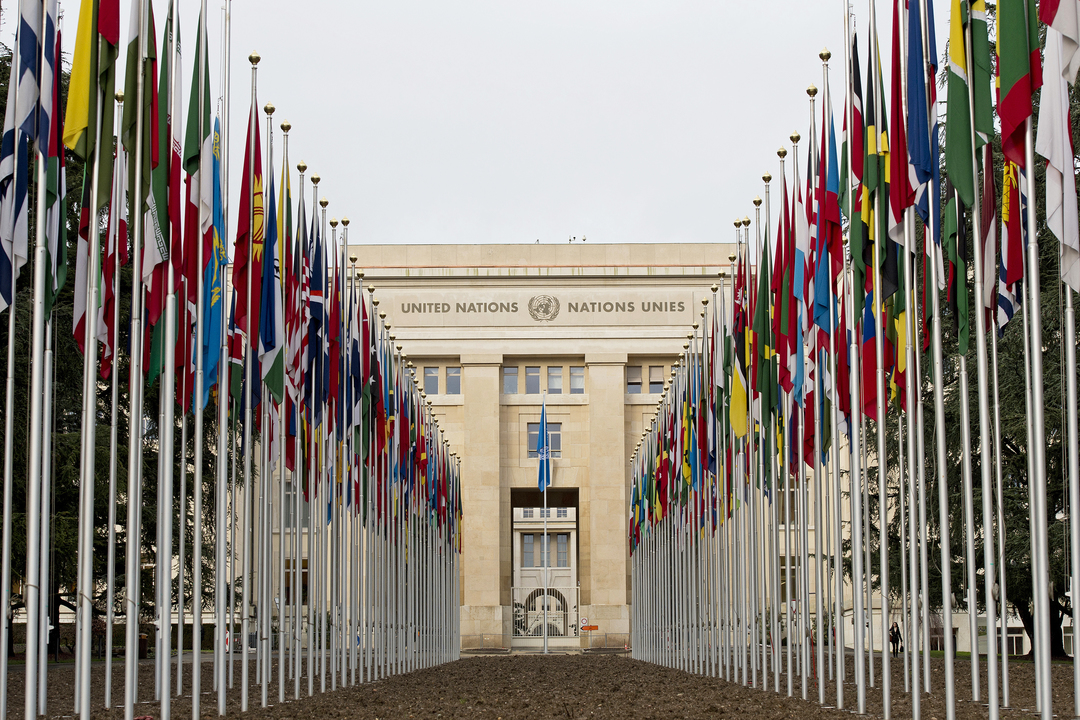The UN Security Council convened to discuss developments in Syria, focusing on the escalation in northwestern Syria by the Assad regime and Russia, and the ongoing “Deterring Aggression” campaign led by the Military Operations Department. This campaign has resulted in the regime losing control over certain areas. The session, requested by the Assad regime and supported by Russia and China, shed light on these and other pressing issues.
UN Envoy to Syria
During the session, UN Special Envoy for Syria Geir Pedersen warned that escalating violence in Syria poses a threat to the entire region. He noted that civilians in Aleppo were reportedly living normal lives following the takeover by military factions.
Pedersen addressed reports of intensifying clashes between the National Army and the Syrian Democratic Forces (SDF) in northern and eastern Syria. He stated that military factions have declared their operations will continue until the regime engages in the political process.
He also highlighted reports of continued public services in Aleppo after the military factions gained control and mentioned footage showing detainees being released from regime prisons in Aleppo. Pedersen emphasized that the ongoing military escalation risks further displacement and civilian casualties.
The UN envoy reiterated that no party in Syria can achieve a military solution, underscoring the urgent need to de-escalate. He revealed ongoing communications with various stakeholders to implement measures aimed at reducing tensions and pledged to organize broad meetings between Syrian and international parties to pursue peaceful solutions.
Russia’s Representative
Russia’s Permanent Representative to the United Nations, Vasily Nebenzia, accused the United States and its allies of supporting militants in Syria. He condemned what he called the “organized attack” on Aleppo by Hayat Tahrir al-Sham (HTS), which controls Idlib.
Nebenzia claimed that over 400 HTS fighters were killed and 600 wounded during the attack and insisted that “the enemy will be defeated regardless of the support it receives.” He also alleged that Ukraine’s General Intelligence Service has been involved in arming and training HTS, accusing Ukraine of turning into a hub for international terrorism.
Nebenzia criticized the U.S.’s “illegal presence” in Syria, claiming it destabilizes the country and facilitates the occupation of oil-rich areas in the northeast. He condemned the U.S. and its allies for supporting terrorists and misrepresenting HTS as a moderate opposition group.
He called for adherence to the 2020 Idlib ceasefire agreement and stressed that stability in Syria could only be achieved by removing illegal foreign military forces and halting airstrikes.
Director of Syrian Civil Defence
Raed al-Saleh, Director of the Syrian Civil Defence, urged the international community to act against the Assad regime’s continued crimes against Syrians. He accused the regime of deliberately targeting civilians in recent days, resulting in significant casualties. Al-Saleh also condemned Russia for carrying out brutal airstrikes that rendered four hospitals in Idlib non-operational.
A Russian Reading of the Syrian Event: Assad’s ‘Villa’ in Rostov
He revealed that the Civil Defence has recently responded to attacks on civilian sites, hospitals, and churches in Aleppo and accused the regime of deliberately targeting rescue teams. Al-Saleh called on the international community to hold the regime accountable and urged Russia to stop shielding Assad from justice. He emphasized the need for a political solution and a transitional plan for governance in Syria.
Switzerland and China
The Swiss delegate expressed support for the UN Special Envoy’s efforts to broker a truce and reach a political solution in Syria. She called on the international community to allow Syrians to determine their country’s fate.
U.S. Representative
The U.S. representative denied any involvement in the military factions’ offensive against regime forces. He emphasized the importance of protecting civilians, safeguarding infrastructure, and ensuring access to humanitarian aid. He expressed hope that the opposition would uphold international law.
The U.S. delegate also stressed that while HTS is designated as a terrorist organization, this does not excuse the crimes committed by the Assad regime.
Turkish Representative
The Turkish representative criticized Damascus for its reluctance to engage in a political process with the opposition, attributing the current crisis to this failure. She highlighted Turkey’s role in launching the Astana process to seek a resolution for Syria but noted that violations of the agreements have exacerbated the situation.
She argued that achieving a sustainable solution requires national consensus based on the Syrian people’s interests. The representative condemned the reliance on other terrorist organizations to fight ISIS, calling it a grave mistake. She reiterated Turkey’s attempts to establish dialogue with Damascus, which were ultimately rejected by the regime.
This article was translated and edited by The Syrian Observer. The Syrian Observer has not verified the content of this story. Responsibility for the information and views set out in this article lies entirely with the author.


